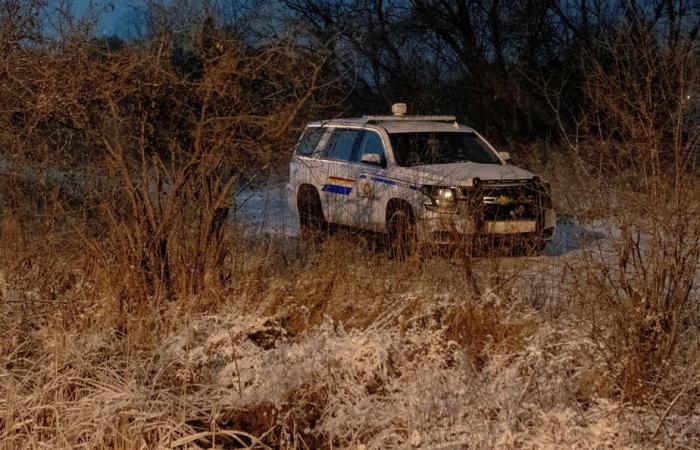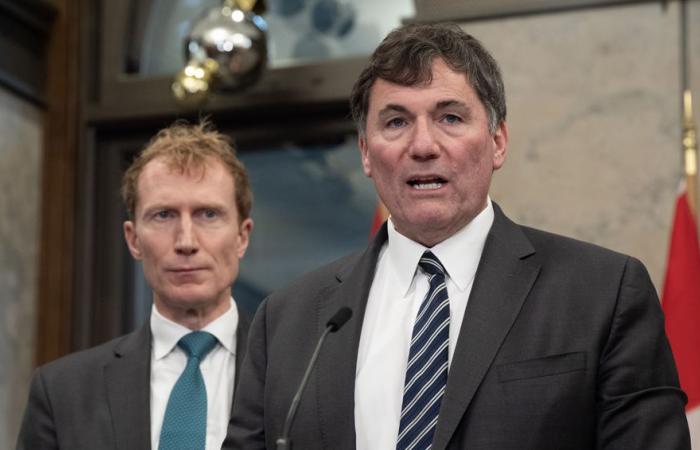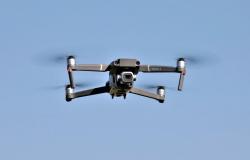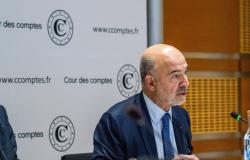(Ottawa) The Minister of Public Safety, and new Minister of Finance, Dominic LeBlanc, hopes to convince the next Trump administration to abandon its threat of customs tariffs by proposing to create a North American unit of police and cross-border agents to fight organized crime. This is one of the elements of his 1.3 billion plan to strengthen security at the Canada-US border.
Posted at 4:05 p.m.
Updated at 6:44 p.m.
Mr. LeBlanc said he was optimistic following a recent conversation he and Foreign Affairs Minister Mélanie Joly had with America’s new “border czar” Tom Homan. They then presented him with the Canadian government’s plan to respond to criticism from Donald Trump.
“I am encouraged by this conversation and by the conversations I have had with the new Secretary of Commerce, Howard Lutnick,” he stressed. He plans to meet the two men in person in the coming weeks to continue discussions. “So I’m optimistic, we have a lot of work ahead of us,” he added.
PHOTO ADRIAN WYLD, THE CANADIAN PRESS
Minister of Public Safety and new Minister of Finance, Dominic LeBlanc (right) and Minister of Immigration Marc Miller
Four Trudeau government ministers unveiled this expected plan on Tuesday, briefly discussed the day before in the economic update. The government has budgeted $1.3 billion over the next five years to secure the Canadian border.
Accompanying Minister LeBlanc were Immigration Minister Marc Miller, Mental Health and Addictions Minister Ya’ara Saks, and International Trade Minister Mary Ng.
The plan is structured around five priorities: countering fentanyl trafficking, giving new tools to law enforcement, improving coordination with the provinces and with the United States, increasing information sharing and reducing the volume irregular entries at the border.
The government is banking on increased collaboration between the Royal Canadian Mounted Police (RCMP), the Border Services Agency and their American counterparts. In addition to the new North American service to fight organized crime, the plan contains a series of measures including the creation of a new air task force within the RCMP with helicopters, drones and mobile surveillance towers.
“This new task force will provide 24-hour surveillance between points of entry and will complement patrols carried out on foot or in a vehicle,” said Minister LeBlanc.
When will the RCMP get their new helicopters? “We can’t just buy a helicopter tomorrow morning, but there are processes where we can rent helicopters fairly quickly,” replied its commissioner, Mike Duheme. So the goal for us is to have all the equipment on the ground as quickly as possible. »
Other government ministries could also provide drones already in their possession. The RCMP will hire 150 new officers and the Canada Border Services Agency (CBSA), around 100.
The sums allocated to each of the five priorities of the plan were not detailed during the press conference with the exception of 77.7 million for a new laboratory to detect illegal drugs, such as fentanyl, and the chemicals used to make them. Minister Saks indicated that it would help 2,000 investigations annually.
This response to criticism of Donald Trump was expected by the provinces who had had a glimpse of it last week. The president-elect of the United States has threatened to impose 25% tariffs on Canada and Mexico. He criticized the two countries for not doing enough to limit fentanyl trafficking and the arrival of illegal immigrants on American soil.
Minister Miller insisted that measures already in place to keep illegal immigrants out of the United States have been proven to work. “Illegal entries into the United States by Canadian visa holders have decreased by 84% since June,” he said.
The plan includes two measures to reduce the crowds at the border caused by “round trips”, that is to say round trips of less than 24 hours to receive immigration services. This maneuver slows down service at border crossings.
The government is adding new powers to Immigration and Refugee Protection Act which will allow it to cancel, modify or suspend immigration documents and stop accepting new applications.
President-elect Donald Trump’s threat to impose 25% tariffs on Canadian imports to the United States has provinces nervous about the devastating impact the tariffs would have on the economy.
Prime Minister François Legault had demanded that Ottawa quantify “the human and financial resources” provided in its plan to secure the border. He did not react to Minister LeBlanc’s announcement on Tuesday.
“It is essential that the federal government’s border plan demonstrates strong and visible action to show that Canada is serious,” reiterated Ontario Premier Doug Ford following a meeting between his counterparts other provinces and territories on Monday.
The threat of tariffs was the first item on the agenda of this emergency meeting of the Council of the Federation, of which Mr. Ford is president this year.
With Joël-Denis Bellavance, The Press







